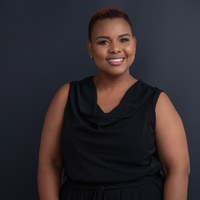Women’s Month: A TIME TO COLLECTIVELY TACKLE OUR CHALLENGES
The different interventions that we implement such as Rise Young Women’s Clubs which was established in 2014 and now recently through the Feminist Leadership and Activism Centre (FLAC), channel and entrench feminist leadership among young women, founded on recognising the diversity of this group and the intersectionality which defines their lives. Our organisation’s advocacy centres the lived experiences of these young women, and we facilitate for them to determine the narrative and for their voices to lead the call.
One of the many issues women continue to face is GBV, which cuts across all communities in South Africa. There continues to be an interplay between poverty, patriarchy, racism, and hetero normativity, resulting in black women and LGBTIQA people living in poverty and being most at risk for GBV. The resultant outcomes of patriarchy include and are not limited to the feminization of poverty in communities where most of our programme participants come from. Patriarchy also perpetuates a manifestation of Intersectionality of Power and Social Disconnectedness. This intersectionality is illustrated in the Sonke study1 and one by KPMG2 that outlines the links between poverty, inequality, and higher risks of exposure to GBV, and the circular effect where women who have been victims of GBV are generally excluded from economic activity.
One cannot be truly free if they do not have the economic means that enable them to meet their basic needs. Women have a harder time finding jobs than men. Stats SA3 reports that “compared to men, women are more likely to remain unemployed for longer periods, which eventually affects their chances of being employed in the future”. In this respect, in Q4:2022, 80,6% of women were in long-term unemployment compared to 76,1% of their male counterparts. Furthermore, the incidence of long-term unemployment among women is reported to be consistently higher than the national average.
Women’s work is linked to the patriarchal expectations of women being the ones to do the care work in the informal, unregulated sector or do unpaid work. This trend can be observed all over the world. Most women all over the world have two full time jobs, they have their careers and the care work they do such as caring for children, parents, spouses, siblings, or extended family members while having to compete with men for equal acknowledgement and compensation.
There has not been a shift in acknowledging care work as work that needs to be compensated. The standard response from many corners is to persuade men to help and even then, they still have a choice to help or not to help. A normative shift is required. Societies’ social view of women should be changed. We must strive to free women from these patriarchal expectations. Women can do what they put their minds to if afforded the opportunity. It is for the above reasons that we align ourselves to the women’s month theme of 2023 that calls for the acceleration of socio-economic opportunities for women’s empowerment. If women are economically free and empowered, if their safety needs are met and fulfilled, they will be able to meet their basic physiological needs, their economic freedom will enable them to have self-esteem and to self-actualize.
August 9th marks the commemoration of National Women’s Day annually in South Africa and every year since 1994, we come together as a country to reflect on how far we are in addressing issues faced by women of this country. This year 2023, we commemorate women’s month as Soul City Institute under the banner of the 20 years of the Maputo Protocol. We reflect throughout the month of August on the feminist transformative agenda set by the Maputo Protocol and how 20 years later we still need to work hard to ensure that individuals and collectives use their power, resources, and skills to mobilise for a just society for everyone especially women as they are still the most marginalised in the country and on the continent. Our agenda as an organisation is to ensure that oppressive structures are transformed and dismantled so that women in all their diversities enjoy their social, cultural, economic, and political freedoms without fear, in a country that enables them to claim and realise their human rights. We need to reach a point where provisions of our country’s constitutions are a reality for everyone and not just for some.
1 Sonke CHANGE trial, a partnership between Wits and Sonke to test an intervention aimed at reducing men’s violence in Diepsloot.
2 KPMG Human and Social Services. Too costly to ignore – the economic impact of gender-based violence in South Africa (2014).
3 Work and labour force | Statistics South Africa (statssa.gov.za)

